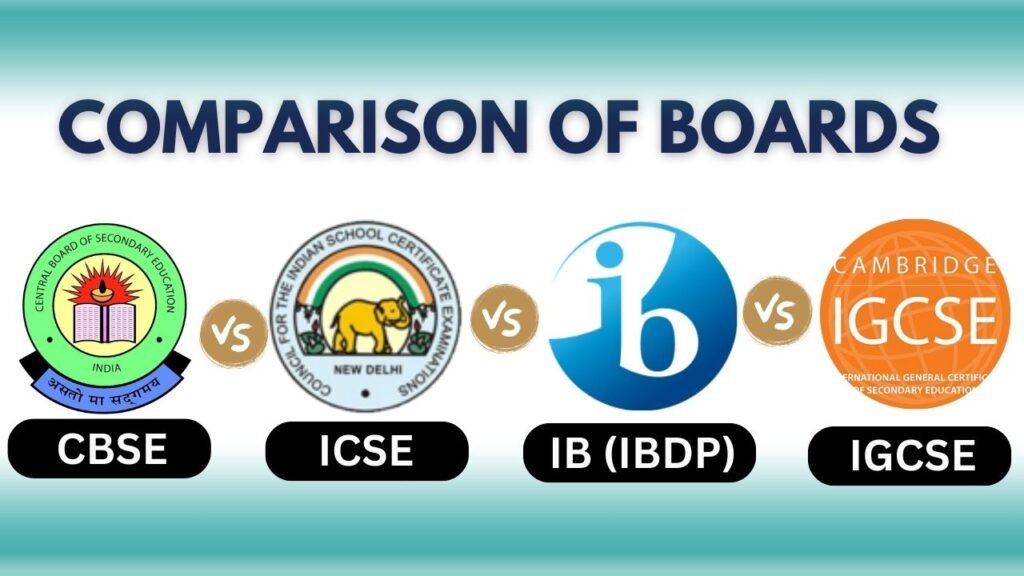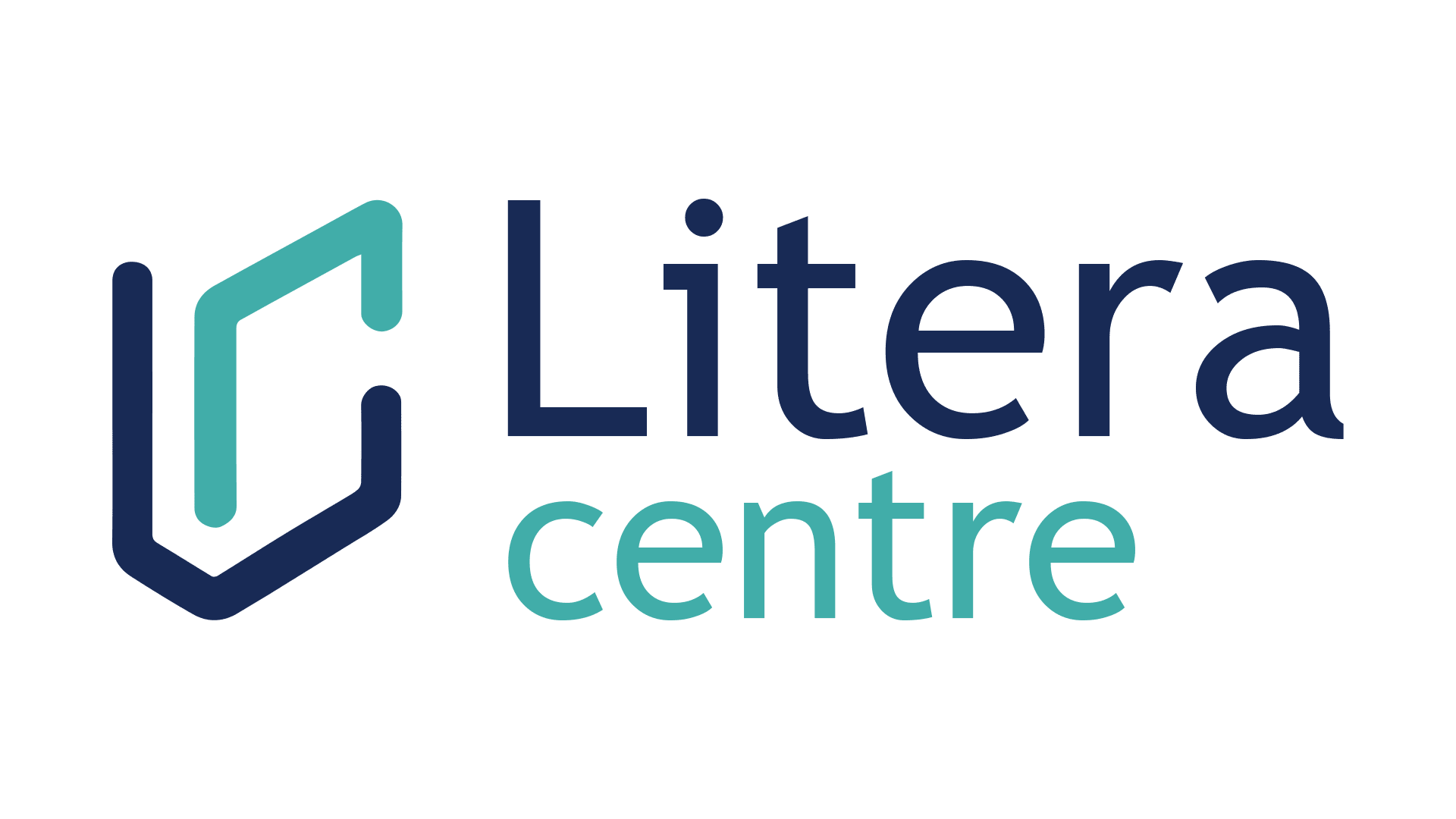When it comes to selecting the best education board for your child, there is no one-size-fits-all solution. Each board – CBSE vs ICSE vs IGCSE vs IB – has its own unique strengths and caters to different academic and career aspirations. The choice ultimately depends on your child’s interests, future goals, and the overall educational environment you wish to provide.
Comparison of Boards: CBSE vs ICSE vs IGCSE vs IB:
CBSE (Central Board of Secondary Education):

The Central Board of Secondary Education (CBSE) is widely recognized across India for its structured curriculum, which emphasizes subjects like mathematics, science, and languages. It focuses on developing analytical thinking and problem-solving skills, making it a popular choice for students aiming for careers in engineering, medicine, or other competitive fields. Its global recognition and affordability provide families with quality education at a reasonable cost.
Exam Pattern:
The board follows a two-term exam pattern, with formative assessments at the end of each term and a summative assessment at the end of the academic year.
Syllabus:
The syllabus is streamlined, with a strong focus on science and mathematics while also balancing arts and humanities. This structured approach effectively prepares students for competitive exams like IIT JEE and NEET.
ICSE (Indian Certificate of Secondary Education):

The Indian Certificate of Secondary Education (ICSE) board, governed by the Council for the Indian School Certificate Examinations (CISCE), offers a balanced curriculum emphasizing languages, science, and the humanities. It focuses on concept clarity, analytical skills, and experiential learning through projects and field trips. This holistic approach and international recognition make it suitable for students seeking diverse global undergraduate programs.
Pedagogy:
The board emphasizes project-based learning, with 20% of the marks derived from internal assessments. This approach encourages students to apply theoretical concepts to real-life situations, fostering a deeper understanding of the subject matter.
Syllabus:
The syllabus is comprehensive, covering a broad range of subjects including languages like Hindi, English, Kannada, Tamil, and Telugu, as well as creative subjects like agriculture, home science, and cooking.
IGCSE (International General Certificate of Secondary Education):

The IGCSE curriculum, offered by the University of Cambridge, is an international education system with an English-based curriculum that emphasizes practical knowledge and application. It provides exposure to multiple foreign languages and a global perspective, making it an attractive option for families planning to study or settle abroad. This flexible curriculum and focus on critical thinking skills prepare students for success in the international education landscape. Additionally, it encourages independent learning and adaptability, essential traits for thriving in diverse academic environments. The program’s recognition by universities worldwide further enhances its appeal.
IB (International Baccalaureate):

The International Baccalaureate (IB) program, headquartered in Switzerland, is renowned for its comprehensive and rigorous curriculum. It encourages students to explore possibilities through experimentation and application of theoretical knowledge. IB’s focus on developing analytical, logical reasoning, and language skills, combined with its emphasis on extracurricular activities and social action, makes it a compelling choice for students seeking a well-rounded global education.
CBSE vs ICSE vs IGCSE vs IB Key Differences:

Syllabus Structure:
ICSE: Detailed and comprehensive syllabus.
CBSE: Precise and light approach.
IGCSE: Practical and application-based.
IB: Rigorous and holistic.
Number of Subjects:
ICSE: Broad range of subjects.
CBSE: Focuses on science and mathematics.
IGCSE: Multiple foreign languages and global perspective.
IB: Wide range with a focus on analytical and critical thinking.
Transferability:
CBSE: Highly flexible for transferring schools within India.
ICSE: More restrictive but beneficial for foreign university applications.
IGCSE: Widely recognized globally.
IB: Globally accepted with strong international recognition.
Grading System:
ICSE: Scores-based evaluation.
CBSE: Alphabet-based grading system.
IGCSE: Grades and percentages.
IB: Points system with detailed assessment.
Conclusion:
When deciding between CBSE vs ICSE vs IGCSE vs IB consider factors such as your child’s academic interests, future career aspirations, the school’s teaching methodology, and the overall educational environment that aligns with your family’s values and goals. It’s also essential to evaluate the availability of these boards in your local area and the associated costs. Ultimately, the choice of the education board should be a collaborative decision between you and your child, taking into account their unique strengths, interests, and the opportunities each board offers for their academic and personal growth. For tailored guidance and support in this decision-making process, consider consulting educational experts at Litera Centre.
Also Read:
- https://www.literacentre.com/blog/igcse-vs-icse
- https://www.literacentre.com/blog/ib-board-vs-cbse
- https://www.literacentre.com/blog/as-level-vs-igcse-gcse
- Benefits of IB Board
Frequently Asked Questions ( FAQs):
How does an ICSE student differ from a CBSE student?
ICSE students differ from CBSE students in several key ways:
Syllabus: ICSE has a more comprehensive and detailed syllabus that emphasizes application-based learning, while CBSE has a more streamlined and structured curriculum focused on building a strong foundation for competitive exams.
Pedagogy: ICSE places greater emphasis on project work and internal assessments (20% of marks), promoting a deeper understanding of concepts. CBSE is more focused on preparing students for competitive exams through a structured approach.
Medium of Instruction: ICSE is strictly English medium, whereas CBSE allows both English and Hindi mediums.
Grading System: ICSE uses a more rigorous numeric grading system (1-9), while CBSE follows a more lenient alphabetical grading (A1-E2).
Competitive Edge: ICSE’s in-depth and analytical approach organically prepares students for national and international competitive exams, while CBSE’s curriculum aligns more closely with the syllabus of these exams.
Difficulty Level: ICSE is generally considered more challenging due to its concept-based approach, extensive internal assessments, and practical application of concepts in exams, compared to the relatively more straightforward CBSE.
In summary, ICSE students tend to have a broader and more rigorous educational experience, with a focus on application and analytical skills, while CBSE students benefit from a more structured curriculum geared towards competitive exam preparation. At Litera Centre, students can find support tailored to the specific demands of both ICSE and CBSE curriculums.





